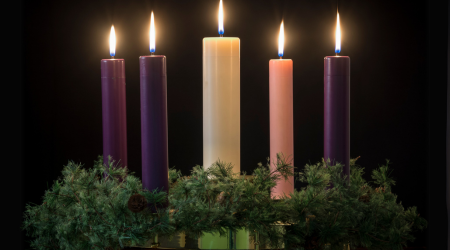We ask you, urgently: don’t scroll past this
Dear readers, Catholic Online was de-platformed by Shopify for our pro-life beliefs. They shut down our Catholic Online, Catholic Online School, Prayer Candles, and Catholic Online Learning Resources—essential faith tools serving over 1.4 million students and millions of families worldwide. Our founders, now in their 70's, just gave their entire life savings to protect this mission. But fewer than 2% of readers donate. If everyone gave just $5, the cost of a coffee, we could rebuild stronger and keep Catholic education free for all. Stand with us in faith. Thank you.Help Now >
Kaskaskia Indians
FREE Catholic Classes
Formerly chief tribe of the confederacy of Illinois Indians (q.v.). The name is of uncertain etymology, but may possible have reference to a "hide scraper." With the other Illinois they probably made their first acquaintance with the French at the Jesuit mission station of Chegoimegon (Lapointe near Bayfield, Wisconsin ), established by the noted Father Claude Allouez in 1667. In 1673, Father Marquette, on his return from the lower Mississippi, was kindly received at their village, and on their earnest request returned later and founded among them in April, 1675, the Mission of the Immaculate Conception, the first of the Illinois missions, apparently about the present site of Utica, Lasalle Co., Illinois. On his death, a month later, the work was suspended until taken up again in 1677 by Allouez, who remained until the arrival of Lasalle in 1679, by whom the mission was turned over to the Recollects, Fathers Gabriel de la Ribourde and Zenobius Membré. In consequence of the opposition of the Indian priests, the attacks of the Iroquois, and the murder of Father Ribourde by the Kickapoo, the Recollect tenure was brief. In 1684 Allouez returned, but withdrew a second time on the rumoured approach of Lasalle from the south in 1687. In the latter year also the Jesuit Father James Gravier visited the tribe.
In 1692 the celebrated Jesuit FatherSebastian Rasle restored the mission, which continued thenceforward under Jesuit auspices for a period of eighty years. In 1693 Gravier took charge and with Binneteau, Pinet, Marest, and others laboured with much success until his death in 1706 from a wound received at the hands of an unconverted Peoria. He compiled the first grammar of the language, and about the year 1700 was instrumental in settling the tribe in a new village about the present Kaskaskia, Illinois, near the mouth of the river of the same name, which remained their principal town and mission station until their final removal from the State. When visited by Charlevoix in 1721 the Kaskaskia were considered Christian, although a considerable portion of the other Illinois still adhered to their old forms.
Notwithstanding the apparent success of the mission, the whole Illinois nation was in rapid decline from the hostilities of the northern tribes and the wholesale dissipation introduced by the French garrisons. In 1764 the Kaskaskia, who may have numbered originally 2000, were reported at 600, and in 1778 at 210, including 60 warriors. In 1762 the Jesuits were suppressed by the French Government, and any later work was carried on by secular priests. In 1795 the Kaskaskia first entered into treaty relations with the United States, and in 1832, together with the kindred Peoria, they ceded all of their remaining original territory in Illinois and were assigned to a reservation in what is now north-eastern Oklahoma, were they still reside, the entire confederated band, including Kaskaskia, Peoria, and other representatives of the old Illinois, together with the remnant of the Wea and Piankishaw of Indiana, numbering only 200 souls, not one of whom is full-blood, and not more than a dozen of whom retain the language.
Join the Movement
When you sign up below, you don't just join an email list - you're joining an entire movement for Free world class Catholic education.

-

-
Mysteries of the Rosary
-
St. Faustina Kowalska
-
Litany of the Blessed Virgin Mary
-
Saint of the Day for Wednesday, Oct 4th, 2023
-
Popular Saints
-
St. Francis of Assisi
-
Bible
-
Female / Women Saints
-
7 Morning Prayers you need to get your day started with God
-
Litany of the Blessed Virgin Mary
Daily Catholic
 Daily Readings for Monday, December 23, 2024
Daily Readings for Monday, December 23, 2024 St. John of Kanty: Saint of the Day for Monday, December 23, 2024
St. John of Kanty: Saint of the Day for Monday, December 23, 2024 Christmas Prayer: Prayer of the Day for Monday, December 23, 2024
Christmas Prayer: Prayer of the Day for Monday, December 23, 2024- Daily Readings for Sunday, December 22, 2024
- St. Chaeromon: Saint of the Day for Sunday, December 22, 2024
- Advent Prayer #2: Prayer of the Day for Sunday, December 22, 2024
![]()
Copyright 2024 Catholic Online. All materials contained on this site, whether written, audible or visual are the exclusive property of Catholic Online and are protected under U.S. and International copyright laws, © Copyright 2024 Catholic Online. Any unauthorized use, without prior written consent of Catholic Online is strictly forbidden and prohibited.
Catholic Online is a Project of Your Catholic Voice Foundation, a Not-for-Profit Corporation. Your Catholic Voice Foundation has been granted a recognition of tax exemption under Section 501(c)(3) of the Internal Revenue Code. Federal Tax Identification Number: 81-0596847. Your gift is tax-deductible as allowed by law.






 Daily Readings for Monday, December 23, 2024
Daily Readings for Monday, December 23, 2024 St. John of Kanty: Saint of the Day for Monday, December 23, 2024
St. John of Kanty: Saint of the Day for Monday, December 23, 2024 Christmas Prayer: Prayer of the Day for Monday, December 23, 2024
Christmas Prayer: Prayer of the Day for Monday, December 23, 2024

